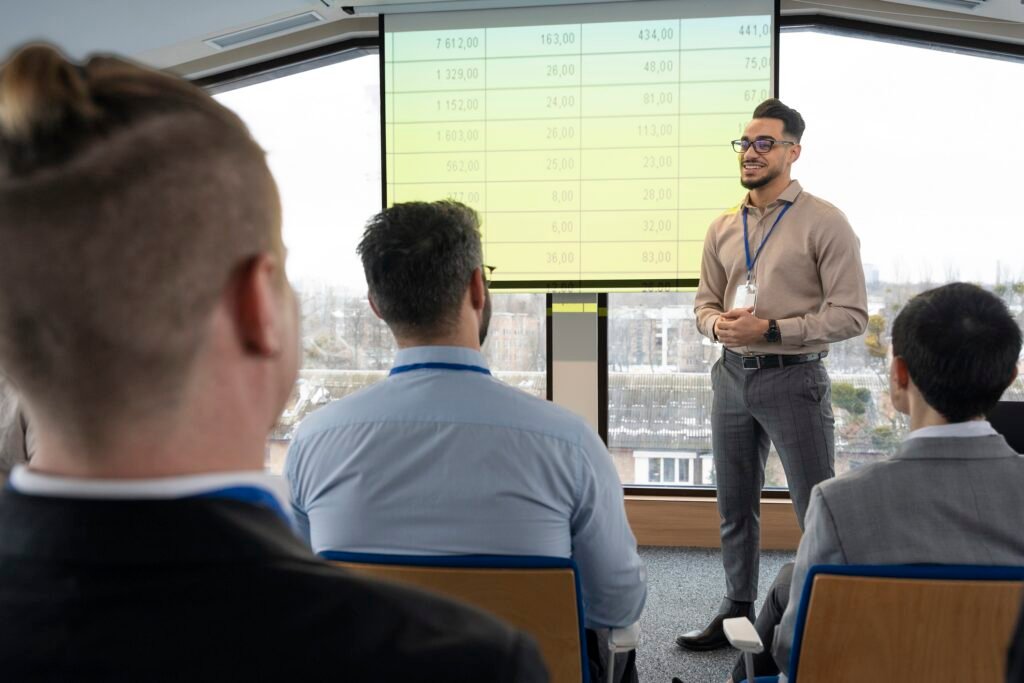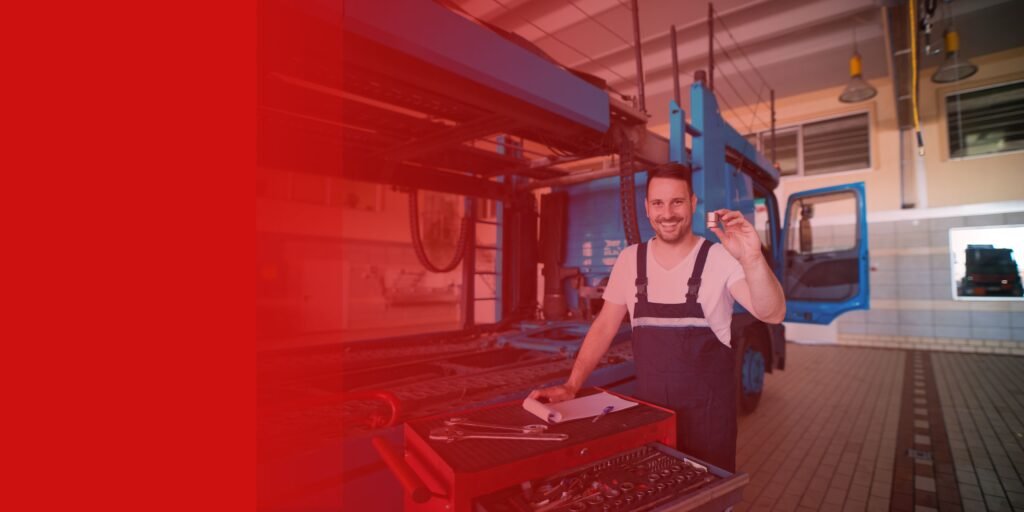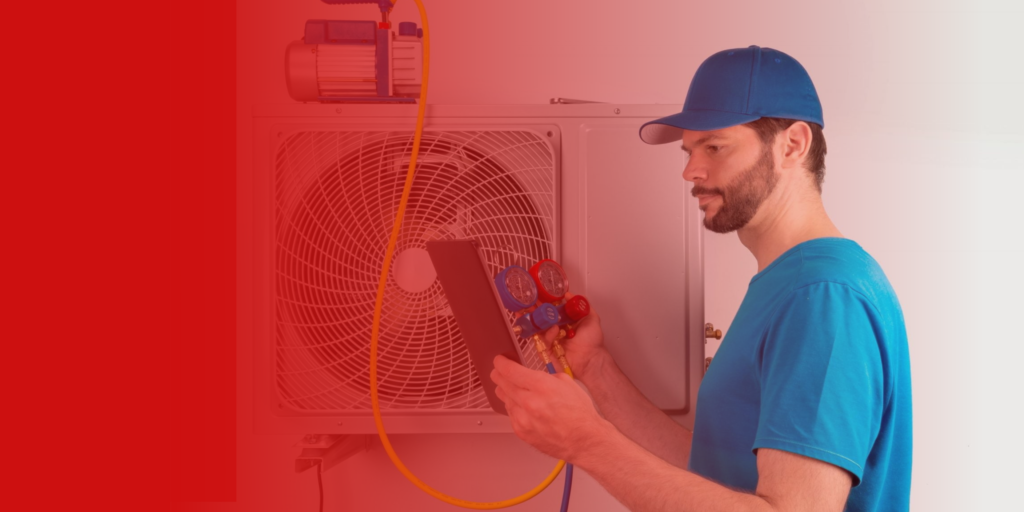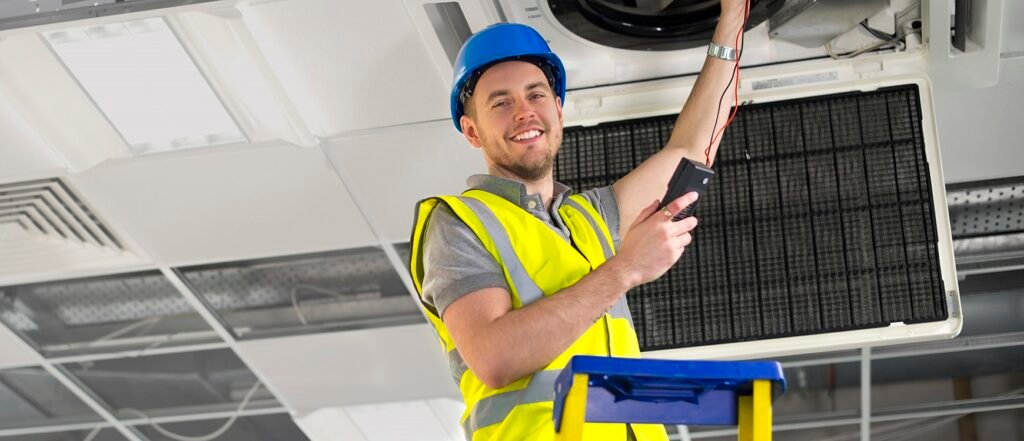
The Future of HVAC Technology: Trends Shaping Sustainable Building Solutions
Table of contents,
- Evolution of HVAC Toward Net‑Zero Performance
- HVAC Technologies Powering NZEBs
- Practices for Net‑Zero HVAC Design and Installation
- Innovations Shaping the HVAC
- Building HVAC Expertise for a Net‑Zero Future
- Indoor Air Quality
- How ASTI Academy Empowers HVAC Professionals
In the global race toward sustainability, net‑zero energy buildings (NZEBs) stand out as a compelling solution. These structures generate as much energy as they consume over a year, dramatically reducing carbon footprints. At the heart of this high‑performance design lies HVAC technology—the systems responsible for heating, ventilation, and air conditioning. Modern breakthroughs in HVAC are redefining building efficiency, indoor air quality, and occupant comfort, making the vision of net‑zero more attainable than ever.
For professionals eager to lead this transition, advanced training, such as an HVAC Design Course Dubai or a practical HVAC Technician Course Dubai, is indispensable. Below, we break down the latest innovations, best practices, and educational pathways in HVAC that drive NZEB success.
The Evolution of HVAC Toward Net‑Zero Performance
Traditional HVAC systems were designed for comfort, not energy optimization. Over time, rising energy costs and stricter environmental regulations spurred a shift toward high‑efficiency equipment and smart controls. Today’s smart HVAC technology Dubai offerings combine sensors, data analytics, and automation to minimize wastage and balance thermal loads in real time.
Key takeaway: Advanced HVAC technology is no longer a luxury—it’s a necessity for net‑zero buildings aiming to meet stringent energy‑performance benchmarks.
Cutting‑Edge HVAC Technologies Powering NZEBs
a. Variable Refrigerant Flow (VRF) Systems
VRF technology uses a single outdoor unit to serve multiple indoor zones, modulating refrigerant flow based on demand. This zoning flexibility reduces energy consumption by up to 40% compared to conventional split systems.
b. Energy Recovery Ventilation (ERV)
ERV units capture thermal energy and humidity from exhaust air to precondition incoming fresh air, maintaining indoor air quality while lowering heating and cooling loads.
c. Geothermal Heat Pumps (GHP)
GHPs leverage constant ground temperatures to provide both heating and cooling. They can achieve coefficients of performance (COP) above 4.0, significantly outperforming traditional air‑source units.
d. Advanced Building Automation Systems (BAS)
Modern BAS platforms integrate HVAC, lighting, and security data, applying machine learning for predictive maintenance and optimal dispatch of energy resources.
e. Low‑Global Warming Potential (GWP) Refrigerants
New refrigerant blends provide efficient thermal transfer with minimal environmental impact, supporting decarbonization goals.
Best Practices for Net‑Zero HVAC Design and Installation
- Load Calculations and Right‑Sizing: Thorough Manual J or equivalent calculations prevent oversizing—an all‑too‑common issue that leads to short cycling and energy waste.
- Integrated Design Process (IDP): Collaboration between architects, engineers, and HVAC technicians during early design phases yields cohesive building envelopes and mechanical systems.
- Commissioning and Continuous Monitoring: Functional testing, sensor calibration, and data logging ensure systems operate at peak efficiency throughout their life cycle.
- Preventive HVAC Maintenance: Routine inspections and filter changes maintain airflow integrity, efficiency, and indoor air quality.
Lifecycle Cost Analysis (LCCA): Decisions based on total cost of ownership, not just first cost, align with net‑zero objectives.
Trending Innovations Shaping the HVAC Landscape
Trend |
Impact on NZEBs |
Why It Matters |
|---|---|---|
| AI‑Driven Predictive Control | Autonomous optimization reduces HVAC energy use by up to 20%. | Learners in Modern HVAC Training Dubai gain skills in AI integration. |
| Demand‑Controlled Ventilation (DCV) | CO₂ sensors adjust airflow to occupancy, slashing ventilation energy costs. | Enhances health and productivity while conserving power. |
| District Cooling Networks | Centralized chilled water plants serve multiple buildings. | Ideal for high‑density urban areas targeting net‑zero clusters. |
| Thermal Energy Storage (TES) | Shifts cooling demand to off‑peak hours. | Integrates renewables and cuts peak demand charges. |
| Digital Twins | Virtual replicas detect anomalies and evaluate energy‑saving strategies. | Used in Fundamentals of HVAC Dubai labs for hands‑on learning. |
Educational Pathways: Building HVAC Expertise for a Net‑Zero Future
• HVAC Design
Focuses on load calculations, duct design, psychrometrics, and green‑building codes. Students learn to size and specify high‑efficiency equipment for NZEBs.
• HVAC maintenance & repair
Hands‑on modules cover HVAC installation, troubleshooting, and HVAC maintenance best practices. Graduates can service advanced VRF, ERV, and BAS systems.
• Modern HVAC design & installation
Explores IoT sensors, cloud analytics, and smart controllers—key technologies that underpin net‑zero buildings.
• Fundamentals of HVAC Dubai
Ideal for beginners, this short course introduces the science of heat transfer, thermodynamics, and airflow—critical foundations for any HVAC role.
Look for programs that blend theory with lab sessions on real equipment, ensuring graduates can bridge the gap between classroom learning and onsite application.
Indoor Air Quality: Balancing Efficiency and Health
Post‑pandemic, indoor air quality (IAQ) standards have tightened. Advanced filtration (MERV‑13 and higher), UV‑C disinfection, and bipolar ionization are being integrated without sacrificing energy goals. Net‑zero HVAC strategies must therefore reconcile clean air delivery rates with minimal fan energy.
Real‑World Net‑Zero HVAC Success Stories
- Office Tower Retrofits: A high‑rise achieved 35% HVAC energy savings by switching to VRF coupled with ERV units and AI‑driven BAS.
- Educational Campus NZEB: By employing geothermal loops and TES, the campus met 100% of its annual energy demand through on‑site solar PV.
- Healthcare Facility Upgrade: Upgraded to low‑GWP refrigerants and advanced air purification, lowering carbon intensity by 42%.
Each project underscores the synergy between innovative HVAC solutions and whole‑building performance.
Future Outlook: Beyond Net‑Zero
The industry is moving toward net‑positive buildings—structures that produce more energy than they use. Next‑gen advancements like solid‑state cooling, magnetocaloric refrigeration, and adaptive façades will further cut HVAC loads. Staying ahead requires continuous learning and certification updates.
How ASTI Academy Empowers HVAC Professionals

At ASTI Academy, our HVAC course portfolio addresses every stage of professional growth:
- Certification Tracks: From core principles to advanced smart HVAC controls.
- Live Labs & Simulations: Work with VRF, ERV, BAS, and IoT platforms.
- Industry Partnerships: Site visits and internships at leading MEP firms.
- Career Services: Resume workshops, interview prep, and employer networking events.
Join our next batch to equip the technologies that drive net‑zero energy success.
Achieving net‑zero energy performance hinges on forward‑thinking HVAC system design, installation, and maintenance. Emerging technologies—from VRF and geothermal heat pumps to AI‑driven automation—are transforming the field. By investing in modern education with ASTI Academy, such as HVAC Professional Certification for design, installation, maintenance, and repair, you position yourself at the forefront of green‑building innovation.
Elevate your expertise, protect the planet, and future‑proof your career. Enroll today and become the HVAC specialist who powers the buildings of tomorrow.
We have changed the lives of over 300,000 students since 1995. Now it’s your turn!
About ASTI Academy
ASTI Academy is leading vocational training institute in Dubai, UAE. Offering Foundation Diploma, Engineering Diploma, Job Oriented Short Courses. You will get KHDA & Globally Recognized Certificate after completion of your courses.
No Need for a Career Break, You can study online / part time also. Apply Now! For all other general inquiries call us at 971 42809955 or email us at enquire@astiacademy.ac.ae
Check our Social media handles Facebook, Instagram,Linkedin, Twitter for more details. Click here to Get all questions answered

 For those looking to pursue this field, ASTI Academy provides a comprehensive learning environment for EV enthusiasts. As a leading electric vehicle engineering training centre, ASTI combines academic excellence with industry experience.
For those looking to pursue this field, ASTI Academy provides a comprehensive learning environment for EV enthusiasts. As a leading electric vehicle engineering training centre, ASTI combines academic excellence with industry experience.



 The welding industry is at the forefront of technological innovation, and training programs are evolving to meet these advancements.
The welding industry is at the forefront of technological innovation, and training programs are evolving to meet these advancements.
 As you explore a career in facade engineering, you may also want to keep an eye on the latest trends in the industry, such as:
As you explore a career in facade engineering, you may also want to keep an eye on the latest trends in the industry, such as:
 In an increasingly complex and competitive automotive industry, obtaining a certification in automotive diagnostics can significantly enhance your career prospects. Not only does it equip you with the knowledge and skills necessary to diagnose modern vehicles accurately, but it also opens up a wide range of career opportunities and offers a competitive edge over non-certified technicians.
In an increasingly complex and competitive automotive industry, obtaining a certification in automotive diagnostics can significantly enhance your career prospects. Not only does it equip you with the knowledge and skills necessary to diagnose modern vehicles accurately, but it also opens up a wide range of career opportunities and offers a competitive edge over non-certified technicians.




